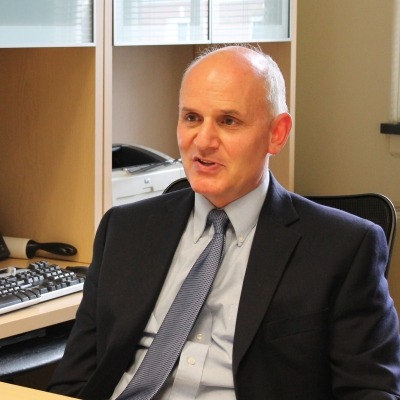Are ADHD medications overprescribed or underprescribed? (Quick answer: both)
 Although medication treatment for ADHD has been shown to significantly reduce core ADHD symptoms in hundreds of studies, important concerns remain about it being prescribed inappropriately to children and teens who do not have ADHD. There is also evidence that many youth with ADHD who could potentially benefit from medication treatment do not receive it, and may realize poorer outcomes in as a result.
Although medication treatment for ADHD has been shown to significantly reduce core ADHD symptoms in hundreds of studies, important concerns remain about it being prescribed inappropriately to children and teens who do not have ADHD. There is also evidence that many youth with ADHD who could potentially benefit from medication treatment do not receive it, and may realize poorer outcomes in as a result.
Estimating the rate of the over- and under-use of ADHD medication is challenging, and a recent study provides the most comprehensive examination to date of this important issue: Assessing under-treatment and over-treatment of ADHD medications in children and adolescents across continents: A systematic review and meta-analysis. [Neuroscience and Behavioral Reviews, 128, 64–73.]
The Study:
The authors began by identifying all published studies of community samples, i.e., representative community members and not samples of those seeking treatment, in which ADHD diagnoses and ADHD medication treatment status was obtained. Over 25,000 potentially relevant studies were screened and a final sample of 36 studies meeting rigorous selection criteria were ultimately selected for review. These studies included over 100,000 participants and were conducted in multiple continents.
Because these were community samples, some participants had been previously been diagnosed with ADHD (based on parent report of a prior diagnosis) and some did not have a prior diagnosis but were identified as having ADHD in the study. Because participants were drawn from the community, however, rather than from those specifically seeking treatment, most would not have had either ADHD or any other diagnosis.
Three groups were identified based on the information obtained: 1) youth with ADHD who were receiving medication treatment; 2) youth with ADHD who were not receiving medication treatment; and, 3) youth without ADHD who were nonetheless receiving medication treatment.
Those in group 1 would be considered appropriately treated, i.e., diagnosed with ADHD and receiving an empirically supported medication treatment. Those in group 2 would represent an ‘under-treated’ group in that they were diagnosed with ADHD but not receiving an evidence-based treatment. Finally, group 3 participants reflect an ‘over-treated’ group in that they were not diagnosed with ADHD but were still receiving medication treatment.
(Note that many would argue that the above categorization oversimplifies things in that not all youth with ADHD necessarily require medication and some believe that other treatments should be tried first. From this perspective, not everyone in Group 1 would be ‘appropriately treated’ and not everyone in group 2 would be ‘under-treated’.)
Results:
The primary analyses were restricted to studies where diagnosis was established using DSM criteria or validated rating scales, and not parental report of a prior diagnosis. Of over 3300 diagnosed youth across 18 studies, only 19% were receiving ADHD medication treatment. That leaves over 80% of diagnosed youth who were not being treated with medication.
In terms of over-treatment, of over 25,500 youth across 14 different studies, under 1% were receiving ADHD medication.
When studies were restricted to those conducted in the US, where ADHD medication prescription rates are highest, 33% of diagnosed youth that were being treated.
Summary and implications:
The main takeaway from this study is that a only a minority of children and teens with ADHD receive medication treatment for the condition. And, relatively few youth who don’t meet ADHD diagnostic criteria are receiving ADHD medication. While recognizing that the actual numbers presented are only estimates, it is therefore reasonable to conclude that under-treatment is substantially more common than over-treatment.
Given concerns that ADHD medication is frequently prescribed to youth without ADHD, Finding that that this is relatively uncommon (under 1%) is reassuring. Nonetheless, even 1% of the youth population in the US is still a lot of individuals and it it is important not to minimize this.
One’s perspective on these findings will depend on how one perceives the value of medication treatment for ADHD. For instance, those who question the utility of medication treatment would be less concerned that only a minority of diagnosed youth receive this treatment. Because medication treatment has perhaps the strongest evidence base as an ADHD treatment, however, many would find this to be highly problematic.
Finally, it should be emphasized that because these finding are based on community samples and not on youth whose parents were seeking evaluation/treatment, they do not apply to the over- or under-use of ADHD medication for help seeking samples. Thus, when parents have their child evaluated by a health professional because of behavioral concerns, far more than 1% may be incorrectly diagnosed with ADHD and then inappropriately treated with medication. That is an entirely different issue which this interesting study was not designed to address.

– Dr. David Rabiner is a child clinical psychologist and Director of Undergraduate Studies in the Department of Psychology and Neuroscience at Duke University. He publishes the Attention Research Update, an online newsletter that helps parents, professionals, and educators keep up with the latest research on ADHD.
The Study in Context:
- Does ADHD treatment enable long-term academic success? (Yes, especially when pharmacological and non-pharma treatments are combined)
- Survey of 2500 families finds what ADHD treatments seem to work/ not work as applied in the real world
- Having ADHD costs $1.1 million in lower lifetime earnings, even when “treated”
- What are cognitive abilities and how to boost them?


